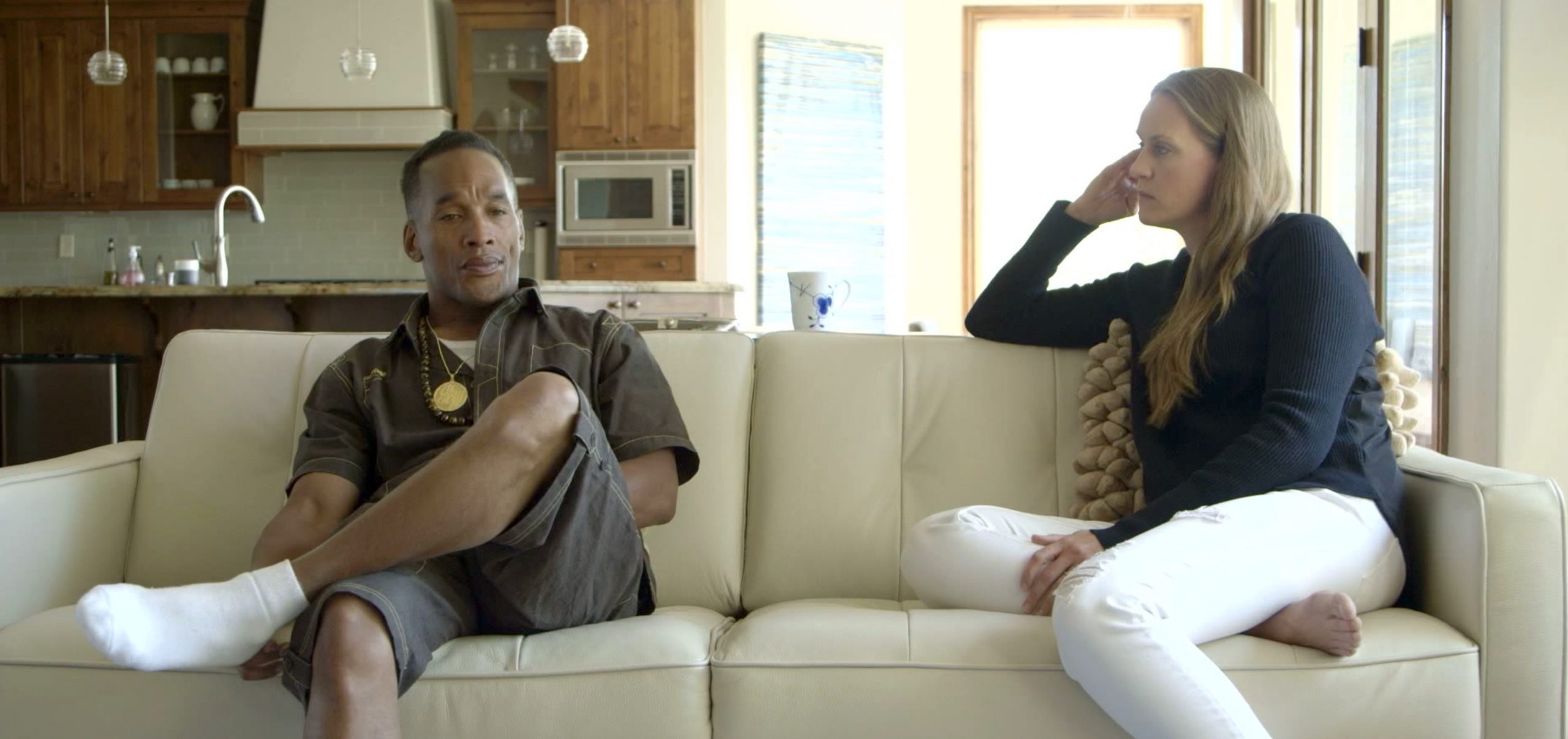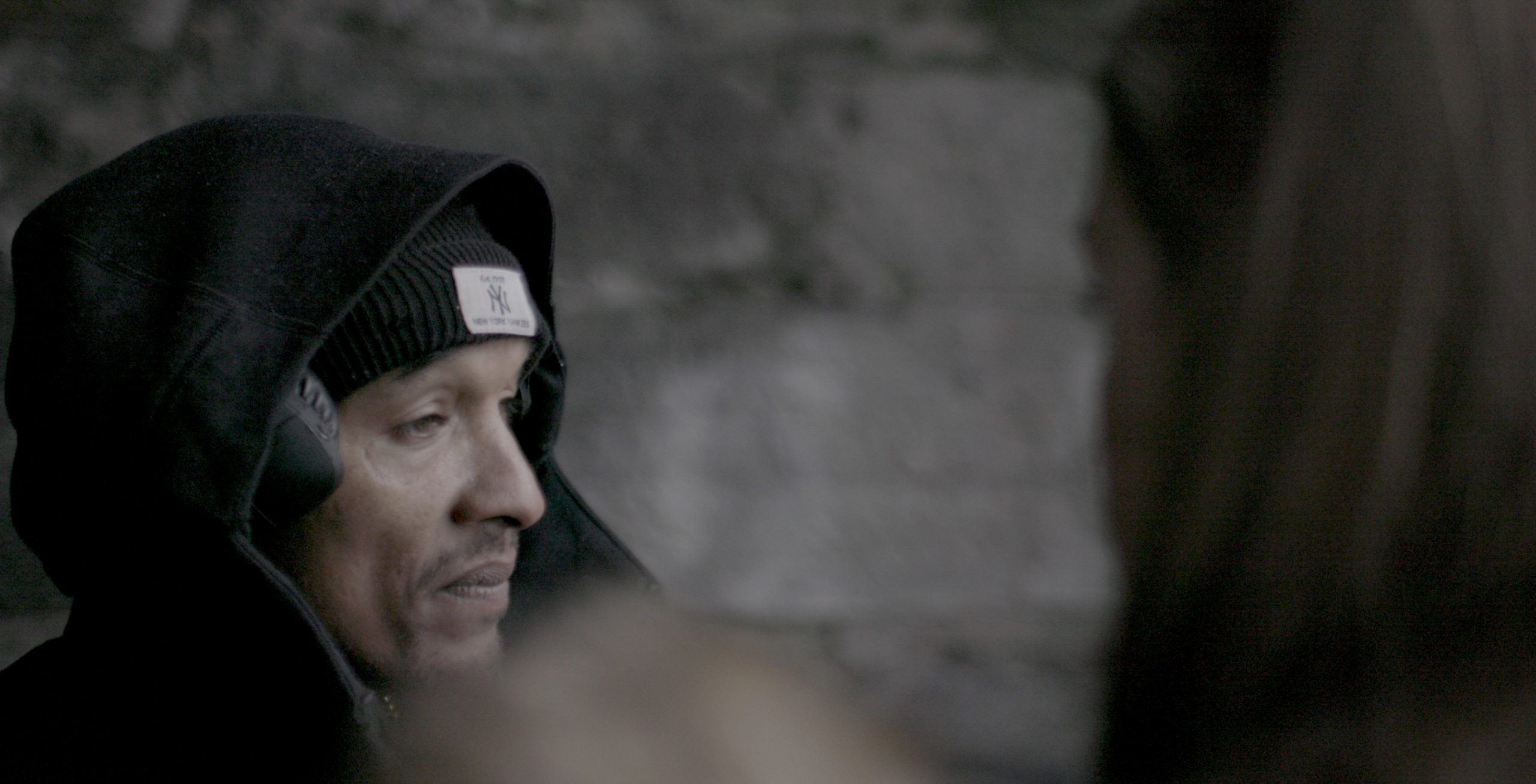INTERVIEW: The former mayor of New York City Ed Koch once described the Central Park Five case as ‘the crime of century’. It has since been revealed to be a shocking miscarriage of justice – five black and Latino men were wrongly accused of raping and beating a white woman in 1989. At the time, commentators eagerly seized upon the vicious assault to illustrate lawlessness and broken race relations in the city. The public demanded justice for the victim, Trisha Meili, a 28-year-old white investment banker.
Mehdi Shakarchi talks to Korey Wise, one of the so called Central Park Five, and his lawyer Jane Fisher-Byrialsen about false confessions, racism and the prospects for US criminal justice under the new Trump presidency.
Two weeks after the brutal attack, before any trial had taken place, Donald Trump commissioned a number of ads in the city’s newspapers calling for Wise’s execution together with his co-suspects in characteristic style:
‘I want to hate these murderers and I always will. I am not looking to psychoanalyse or understand them, I am looking to punish them.’
‘I have no thoughts about that man. He doesn’t know me, and I don’t know him,’ Korey Wise tells me. Wise was imprisoned at just 16 years of age after having falsely confessed to the rape and brutal assault of the Central Park jogger on the evening of April 19 1989.
Wise was one of a group of over 25 youths that had been in the park that evening. He and four other black and Latino teenagers were taken into police custody for interrogation.
For someone who spent 15 years in prison for a crime he did not commit, Wise comes across as remarkably forgiving. ‘I know what he [Trump] did, and he doesn’t have my support,’ he tells me. But Wise likes to think that the ad was aimed at the real culprits, not him.

Korey Wise – just 16 years old – in court
No chance of a fair trial
That said, Michael Warren, a civil liberties lawyer who acted on the case, has argued that Trump’s ads played a significant part in the conviction of the Central Park Five. Jane Fisher-Byrialsen, Wise’s lawyer, agrees. ‘It certainly fueled the fire,’ she tells me. ‘Trump has always had a lot of political connections especially in New York. It appeared to motivate the prosecutors to go after these guys.’
Fisher-Byrialsen emphasises the role the media played. ‘The cards were so stacked against them in terms of getting a fair jury that had they had the best lawyers in the world the result wouldn’t have been different. The way the case was handled by the media played the largest role because they never had a chance of getting a fair jury. They were vilified in the media from the day that they were arrested.’
Korey Wise was released from prison in 2002 after the culprit eventually confessed. Understandably, Wise is reluctant to talk in too much detail about his experiences in prison. He was kept in solitary confinement for two years. On mention of the name Matias Reyes however he brightens up.
‘Inmate Reyes is my angel,’ he tells me. ‘I used to watch Musicbox, a TV program, everyday – to keep up with the fashion,’ he says. His first encounter with the serial rapist and murderer in Rikers Island jail complex culminated in a fight after Reyes changed the TV channel. It was Reyes’ confession that would lead to Wise’s release.
The pair would meet on the basketball court sometimes. During his time in prison, Reyes had embraced religion and on one occasion invited Wise to visit the prison chapel with him. Wise politely declined. After his confession, a re-examination of the DNA evidence proved that it was Reyes’ semen alone that was found on Meili’s body.
After their release and following an 11-year court battle, the Central Park Five settled a civil case with the city for $41m in 2014. In an opinion article for the New York Daily News, Trump described the case as a ‘disgrace’ and stated that ‘settling does not mean innocence.’
Trump continued:
‘The recipients must be laughing out loud at the stupidity of the city. Speak to the detectives on the case and try listening to the facts. These young men do not exactly have the pasts of angels.’
Fisher-Byrialsen is engaged in ongoing litigation on behalf of her client to release the 250,000 documents that were exchanged with the state during the civil case to be made public. ‘It will be harder for those people who maintain that the Central Park Five are guilty to stand by that if they are willing to carefully view the record of the case,’ she says. But she adds: ‘Donald Trump can say whatever he wants – whether its true or not – and people believe it.’
Wise’s lawyer believes that the majority of the documents will become public by the end of 2017, although she doesn’t think that the state will ever apologise for what her client went through. ‘There is no amount of therapy or apologies that can make him whole again,’ she says.

Korey Wise in conversation with Jane Fisher-Byrialsen (from ‘In the Closed Room’)
Going backwards
Fisher-Byrialsen is not hopeful for the future of criminal justice in the US under the new administration. ‘Obama made a lot of very positive changes,’ she said. ‘We’re going to go back to seeing over-prosecution in drug crimes and over-incarceration. I think mandatory minimums are going to go up. So I think its all going to be a great step backwards.’
I ask Wise what he thinks Trump will mean for US criminal justice. ‘I just hope the best for America,’ he replies.
In 2012 Ken Burns made a film (The Central Park Five) which explored the race tensions that existed in New York City at the time that the five were convicted. ‘Racism played a huge part,’ Fisher-Byrialsen tells me. ‘New York back then, probably more than it is now, was a very racist place. The crack epidemic was going on and there was so much hatred towards minorities and so much political pressure to get these black and brown people under control.’
As violent crime in New York escalated, the police response grew more draconian. ‘It was crazy. There was just too much police brutality going on. Too much,’ Wise tells me.
‘When you look statistically at people who are in jails, it’s overwhelmingly black and other minorities,’ his lawyer says. ‘Of course, there are poor white people but they are not getting targeted by the police or getting shot by the police.’
‘Income inequality plays an enormous part in the US in terms of the quality of attorneys that people are able to get,’ Fisher-Byrialsen continues. ‘Most people that are poor in the US end up getting defended by a public defender. When you’re a public defender you carry a caseload of about 100 cases from shoplifting to murder and rape. It’s impossible to do a good job.’
Wise still blames himself for having been pushed into making a confession. ‘I didn’t know any better,’ he tells me.
False confessions
On the night of their arrest, each of the Central Park Five initially denied any wrongdoing, but after lengthy interrogations by the police, Wise and three of his co-defendants implicated themselves in the rape of Trisha Meili. Four of the boys were made to sign confessions and were filmed claiming that they had witnessed one of the others commit the rape.
How was he treated during the interrogations? ‘They made me feel like they were Santa Claus. Come on, man, how do you think they made me feel? They just want to get a story out of you.’
At just 16 years old, Wise was the oldest in the group, an adult for the purposes of the US criminal justice system. He was not legally entitled to have a parent present during the interrogations and there is no requirement for interviews to be filmed.
Wise was interrogated for about 72 hours with little respite. A 2016 study has shown links between sleep deprivation and the likelihood of an individual making a false confession. ‘I was probably looking tired,’ he recalls. ‘So they took me to the bathroom, put water on my face so that you wake up and don’t look like you’re sleeping on the camera.’ Wise was also physically assaulted by the officers.
‘He had three written statements attributed to him that were signed by him but not written by him,’ Fisher-Byrialsen tells me. ‘They were written by the police and all three of them are factually and significantly very different from each other.’
There were also two confessions caught on film. It wasn’t until version five of the confession that Wise finally implicated himself in the rape. After the fifth time, Fisher-Byrialsen recounts, ‘the DA says to him: “Well, Korey, you’ve been telling us a lot of stuff, why should I believe you this time?” He says to her: “They were hitting me and getting in my face so I figured I better say this”.’
According to the New York Innocence Project, more than one in four people wrongfully convicted but later exonerated by DNA evidence made a false confession or incriminating statement. Fisher-Byrialsen points out: ‘They only take cases where they can exonerate people based on DNA evidence.’
‘There are so many people that are sitting in prison who were tricked by the Reid technique,’ she continues. This is a controversial interrogation technique banned in many European countries because of the high incidence of wrongful convictions. ‘It is a huge problem,’ the lawyer tells me. The technique involves nine steps including advising the suspect that the evidence has led the police to the individual as a suspect (even if that is not the case) and attempting to excuse the crime to encourage the individual to make admissions.
‘One person befriends the suspect and minimizes what they have done,’ she explains. ‘They lie to them. There’s something called the false evidence ploy where they say to them look we have your fingerprints, we have the murder weapon, you might as well tell us what happened otherwise its not going to go well for you from here on.’
The confessions elicited by the Central Park Five were so inconsistent that, had the defendants been tried simultaneously, it would have been difficult for the prosecution to prove their case. ‘They tried Korey and Kevin Richardson together because their confessions were both similar. Then they did the other three together because their confessions were more similar,’ Fisher-Byrialsen says. ‘It was government trickery. They knew the inconsistencies were going to be way more visible if all five were together.’ Fisher-Byrialsen acts for many clients that have been subjected to abusive police interrogation tactics.
For Korey Wise, the damage is already done. ‘He was in prison from age 16 to 30. He’s never going to have a normal life. He’s never going to recover,’ she tells me. ‘He goes out as much as he can. He goes to rallies and speaking engagements. He tries to be an activist for minorities and young people in the criminal justice system. He’s not employed and probably never will be. He lives in Harlem, has no children and there is no significant other. He’ll say that he’s happy. I think he is part of the day.’
Korey Wise says he’s just trying to stay focussed and ‘keep on going on’.
‘In the Closed Room’ is a documentary about the flaws in the US justice system that lead to false confessions. It follows the work of the lawyer Jane Fisher-Byrialsen in three cases including the case of Korey Wise. You can support the documentary by making a contribution to their Kickstarter campaign here.






